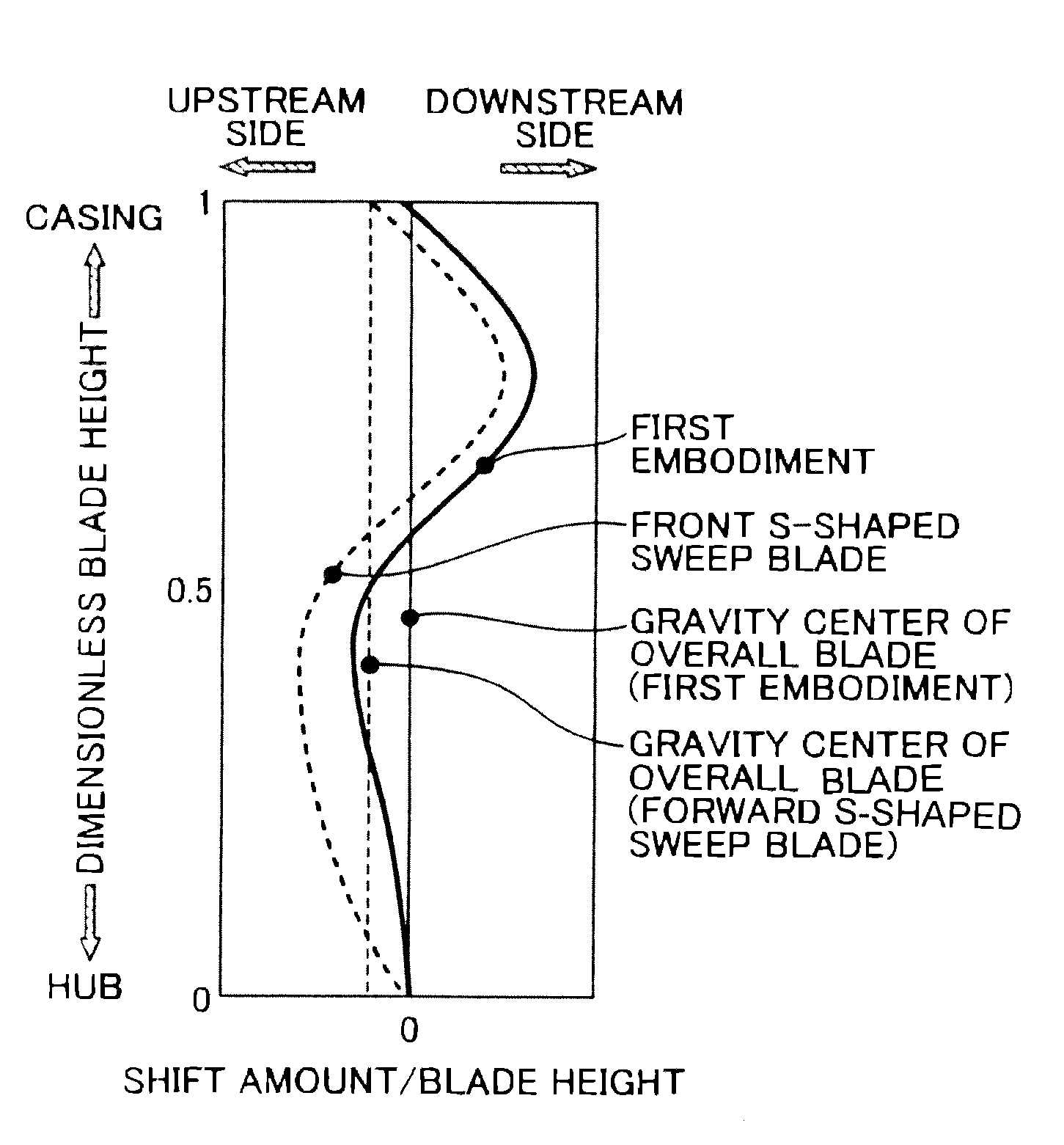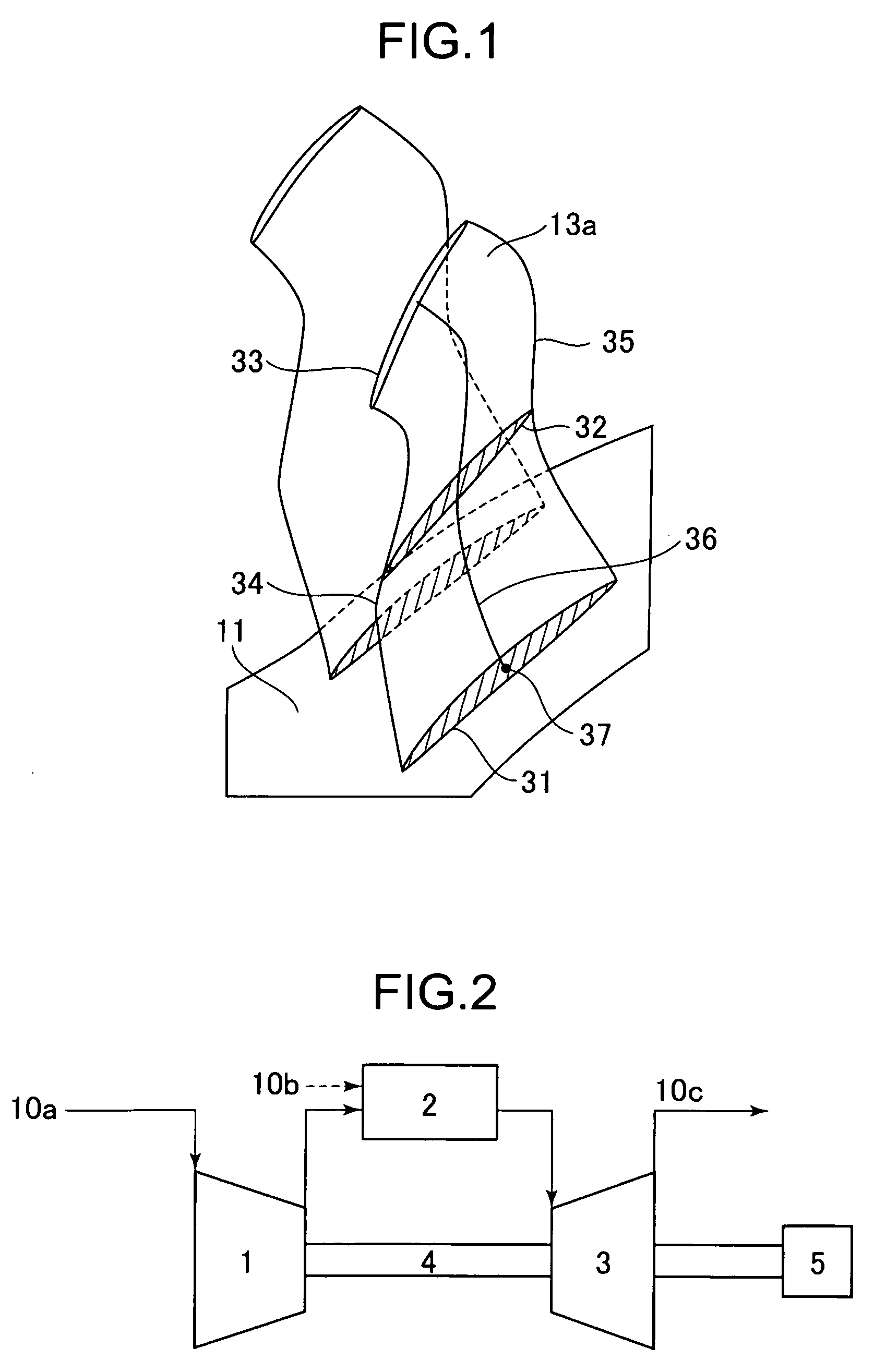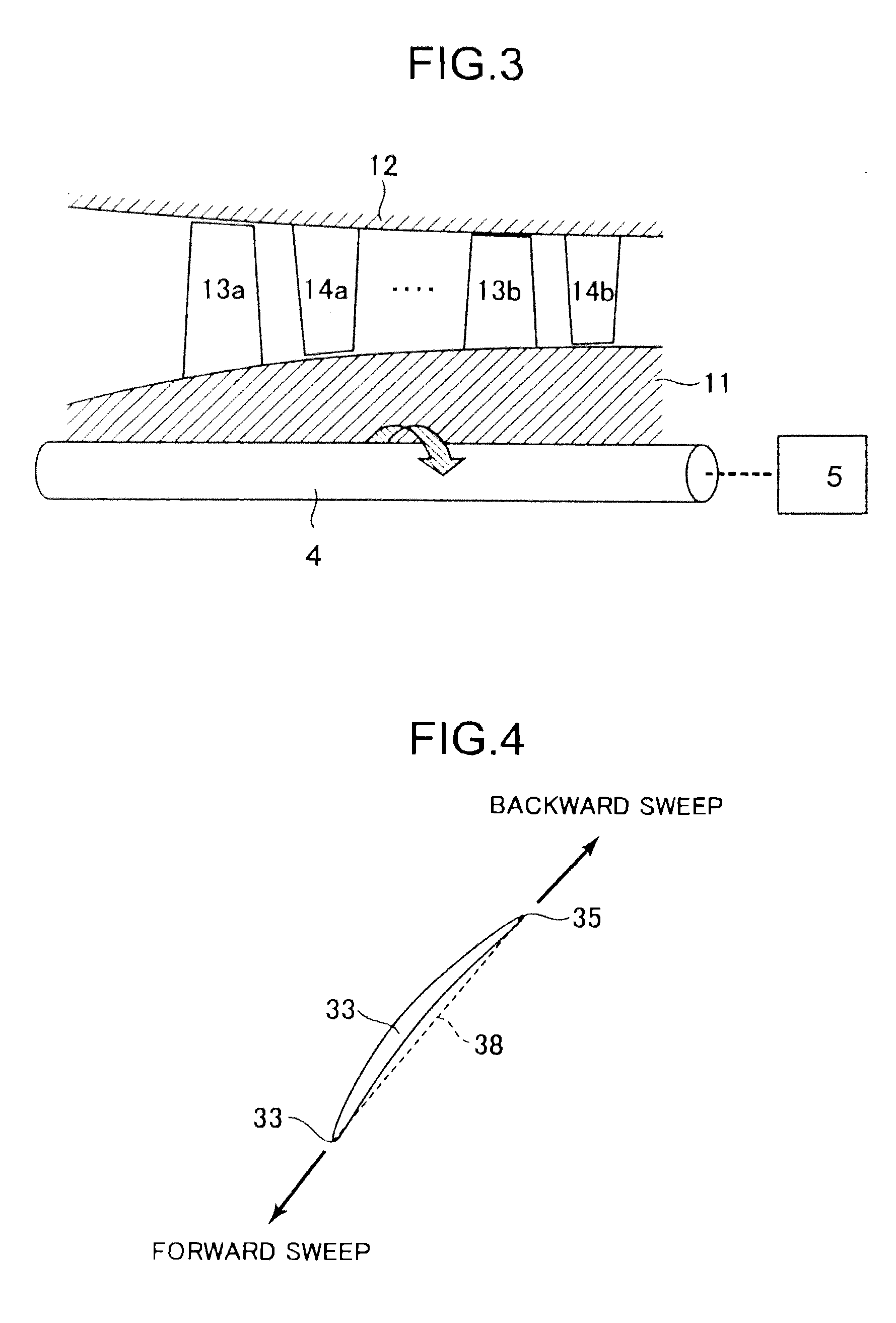Transonic blade
a transonic blade and blade technology, applied in the direction of wind motors with parallel air flow, wind motors with perpendicular air flow, liquid fuel engine components, etc., can solve the problems of increasing local stress, insufficient discussion of the strength of the transonic blade with respect to the modification of the stacking line, etc., to reduce local stress and reduce shock loss
- Summary
- Abstract
- Description
- Claims
- Application Information
AI Technical Summary
Benefits of technology
Problems solved by technology
Method used
Image
Examples
first embodiment
[0037]FIG. 2 is a cycle configuration diagram of an axial-flow rotating machine into which a transonic blade of a first embodiment is built. The axial-flow rotating machine is described taking a gas turbine compressor as an example.
[0038]A description is first given of an outline of a cycle. Working fluid 10a first flows into an axial-flow compressor 1. The working fluid 10a compressed by the compressor 1 flows into a combustor 2, in which the compressed working fluid is mixed and burned together with fuel 10b injected thereinto to produce high temperature high pressure combustion gas 10c. The high temperature high pressure combustion gas 10c flows into a turbine 3. The combustion gas 10c flowing into the turbine 3 rotates a shaft 4 to drive a generator 5 for electric power generation.
[0039]FIG. 3 is a cross-sectional view of the axial-flow compressor 1 taken along a meridional plane. Referring to FIG. 3, the compressor 1 is configured to include a rotor 11 or a rotating shaft; a ca...
second embodiment
[0054]FIG. 15 is a perspective view of a rotor blade 13a according to a second embodiment. The rotor blade 13a of the second embodiment is different from the rotor blade of the first embodiment in that a stacking line extending from a hub cross-sectional surface 31 to a mean cross-sectional surface 32 is a straight line and a tip cross-sectional surface is located on the most upstream side. Incidentally, the same elements as in FIG. 1 are denoted with like reference numerals and their detailed descriptions are omitted.
[0055]Characteristics of the rotor blade 13a of the present embodiment are described with reference to FIG. 16. FIG. 16 illustrates a comparison between the stacking line of the present embodiment and that of the first embodiment. The stacking line 36 of the present embodiment is a straight line extending from the hub cross-sectional surface 31 to the mean cross-sectional surface 32 and is shaped to protrude toward the downstream side in the main flow direction from th...
PUM
 Login to View More
Login to View More Abstract
Description
Claims
Application Information
 Login to View More
Login to View More - R&D
- Intellectual Property
- Life Sciences
- Materials
- Tech Scout
- Unparalleled Data Quality
- Higher Quality Content
- 60% Fewer Hallucinations
Browse by: Latest US Patents, China's latest patents, Technical Efficacy Thesaurus, Application Domain, Technology Topic, Popular Technical Reports.
© 2025 PatSnap. All rights reserved.Legal|Privacy policy|Modern Slavery Act Transparency Statement|Sitemap|About US| Contact US: help@patsnap.com



